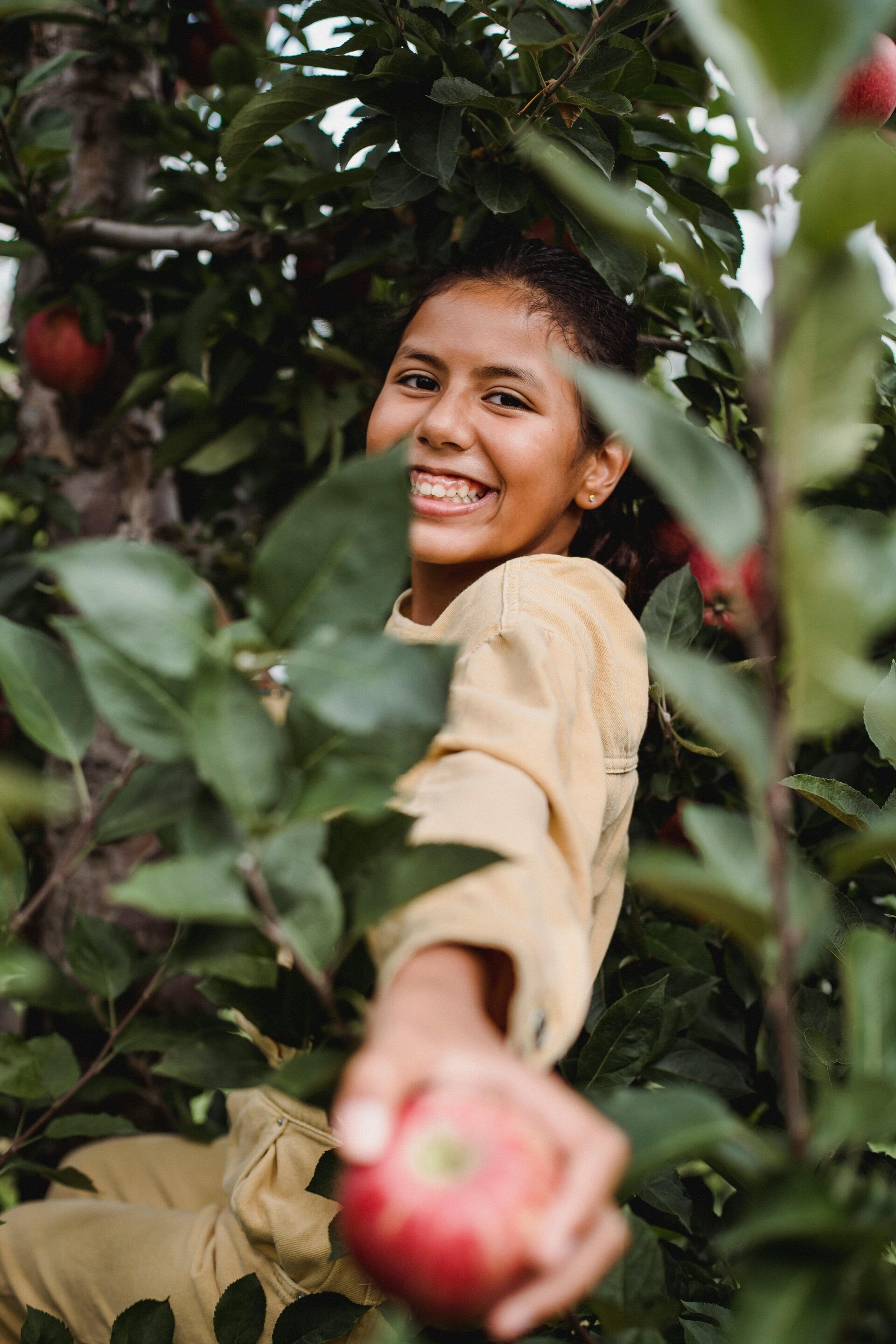Plant your legacy with fruit trees
Welcome to Worms-A-Plenty's fruit tree selection! Discover the joy of growing your own delicious fruit right in your backyard. We're here to guide you in choosing the perfect trees for your Indianapolis garden. Let's cultivate a fruitful future together.

Dwarf Cherry tree
Well drained soil-full sun-Apply mulch 2-3 inches from trunk. Loamy soil-PH 6.0-7.0
Key things to know about fruit trees
Choosing the right fruit tree can seem daunting, but we're here to simplify the process. Here are some essential considerations:
- Know Your Growing Zone: Fruit trees thrive in specific temperature ranges. Growing zones (like Zone 5 or Zone 6 in Indiana) help determine which trees will survive your winters and summers. Chill hours (cold exposure between 34–45°F) are also critical for fruit production.
- Choose the Right Tree Type: Self-pollinating trees (like peaches or sour cherries) can produce fruit alone. Cross-pollinating trees (like apples or pears) need a second compatible variety nearby to bear fruit. Ask about bloom times—pollinators must overlap for successful fruiting.
- Start Small and Healthy: Younger trees are often better than large, mature ones—they adapt faster and are easier to shape. Inspect roots before planting: avoid trees with encircling or girdled roots. Check for signs of disease like leaf spots or bark damage.
- Understand Soil and Spacing: Fruit trees prefer well-drained soil with good organic content. Space trees 25–35 feet apart for proper air flow and pollination. Avoid planting in low spots where water collects.
- Pollination and Bees Matter: Bees are essential for fruit production. Never spray insecticides during bloom—this can harm pollinators and reduce fruit yield.
- Watering and Maintenance: Newly planted trees need frequent watering, especially in spring and summer. Mulch helps retain moisture and suppress weeds. Prune annually to shape the tree and remove dead or diseased branches.
- Expect Patience and Rewards: Most fruit trees take 2–5 years to produce fruit. The first harvest is a milestone—customers should be prepared for a long-term investment in beauty and bounty.

Meet the fruit tree enthusiast
🍎 Meet Linda, 52, from rural Indiana: a home gardener, nature lover, and family-centered homemaker. Linda dreams of walking through her backyard and picking fresh apples for pie, peaches for jam, and cherries for her grandkids to snack on. She’s not just buying a tree—she’s planting a legacy. Her garden is her sanctuary, and she sees fruit trees as both beautiful and practical: shade in summer, blossoms in spring, and harvests in fall.
What Linda Values:
- Simplicity: She wants trees that are easy to care for and suited to Indiana’s climate.
- Longevity: She’s thinking years ahead—about growth, shade, and family traditions.
- Beauty + Function: She loves flowering varieties that also bear fruit.
- Guidance: She appreciates clear instructions and friendly advice from local sellers.
- Pollinator-Friendly: She’s mindful of bees and wants to support healthy ecosystems.
What Motivates Her:
- Creating a backyard orchard that feels like a personal Eden
- Teaching her grandkids about nature and patience
- Making homemade treats from her own harvest
- Supporting local businesses that share her values

Why worms-a-plenty fruit trees are a cut above
🌱 At Worms-A-Plenty, we offer fruit trees that are not only beautiful but also perfectly suited for the Indianapolis climate. Here's what sets us apart:
- Locally Adapted for Indiana’s Climate: Your trees are selected to thrive in Monroe’s growing zone, withstanding seasonal shifts and producing reliably year after year. Big-box stores often sell generic varieties that struggle in local soil or freeze in winter.
- Flavor-First, Not Just Shelf-Ready: Commercial growers often prioritize appearance and shelf life over taste. You offer heirloom and specialty varieties that burst with flavor—like juicy peaches, crisp apples, or fragrant cherries that customers can’t find in stores.
- Pollinator-Friendly and Organic Practices: Your trees support bees and butterflies, and you avoid harmful sprays during bloom. That means healthier fruit, safer gardens, and a more vibrant ecosystem.
- Long-Term Value and Longevity: Fruit trees from your store aren’t just seasonal—they’re investments. With proper care, they’ll produce for 20–50 years, offering shade, beauty, and bounty.
- Personal Guidance and Planting Support: You don’t just sell trees—you guide customers through planting, pruning, and care. That builds trust and ensures success, especially for first-time growers.
- Customer Connection and Community Roots: Your store is part of the local story. Customers know they’re buying from someone who cares about their garden, their family, and their future—not just making a sale.
The single most important thing to know
The single most important thing to know when selecting a fruit tree is whether it’s suited to your local climate and growing zone. If the tree isn’t compatible with your region’s temperature range, chill hours, and seasonal patterns, it won’t thrive—no matter how well you care for it.
Cold-hardy trees (like apples or sour cherries) do well in Indiana’s Zone 5–6, but tropical varieties (like citrus or figs) may struggle or die in winter. Chill hours—the number of cold hours a tree needs to set fruit—vary by species. A tree that needs 800 chill hours won’t fruit properly in a warmer zone. Late frosts can damage early bloomers, so choosing trees with the right bloom time helps protect your harvest.
At Worms-A-Plenty, we guide buyers toward trees that are climate-matched, pollinator-friendly, and built to last. That’s how we turn a hopeful purchase into a fruitful legacy.